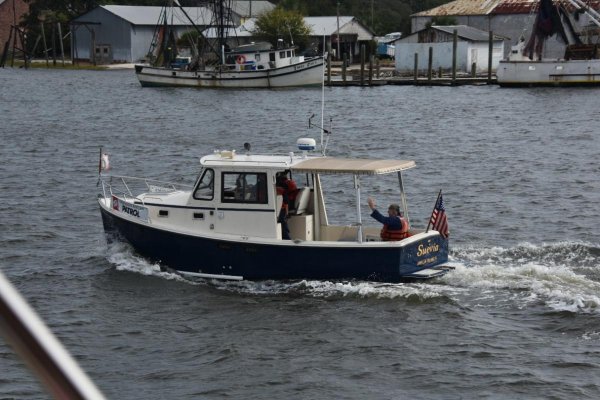Take exception all you want. There are auxiliarists that give the organization a black eye...far more than you or anyone wants.
As an active duty Group Operations officer monitoring Flotilla activities..... I saw plenty of good and bad.
Yes, he talks of clearing up the misunderstanding. There is no misunderstanding. I've witnessed and observed and seen some very bad behavior. I know others do a great job and are offended by what some do. I frankly think a different name would help, rather than one with USCG in it. That leads to some misunderstanding.
It's like anything, there are good and bad. I praise those who are helpful and don't misrepresent anything or offer opinions on things they don't know.
I'm a businessman. Businessmen get attacked all the time. They deserve it. It's not a misunderstanding. I'm one of the first to condemn what we all see. I've been one of the first to speak about unscrupulous boat manufacturers, but as a businessman I have the knowledge in identifying untrustworthy situations.
If you're a good USCGAux member, don't take offense at the negatives mentioned. We're just the messengers. Take offense at your members who hurt the reputation of the organization. Encourage better self monitoring and regulating.
I love seeing a cheerful Auxiliary person who it's clear is just there to help and makes their role clear. I hate seeing one who acts the way some do. If you're in an area where the bad ones are one out of 200, that's great. However, there are areas where the bad ones may be nearly half the group and then when new members join, they get led down the wrong path.
The Auxiliary consists of volunteers and most are just there to help. It's unfortunate all are not. It's interesting that I spoke to someone who does a lot of boating on a large lake in another state. It appears to the two of us, that those on inland lakes may have a greater tendency to go overboard than those on the coast. This may be because on the coast you also have USCG. On the lake there is no USCG so the Auxiliary members may tend to more quickly act like they are.

